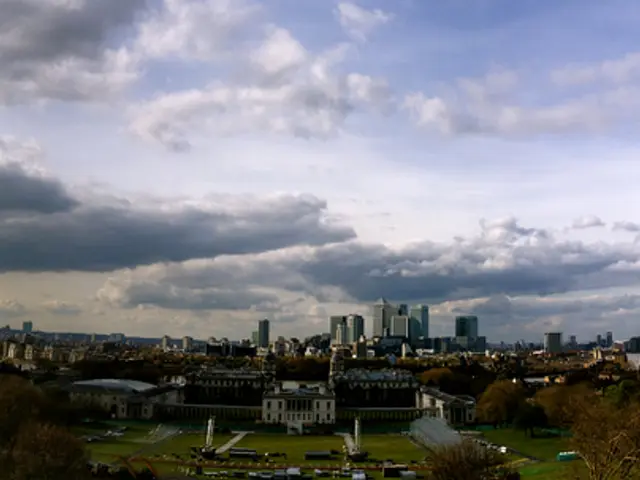Mortgage rates climb up as housing prices fall among lenders
In a recent report, the UK's largest building society, Nationwide, has revealed a decrease of 0.4% in house prices in April compared to previous months. This marks the second consecutive fall in monthly house prices, with the pace of year-on-year house price growth slowing from 1.6% in March to 0.6% in April.
The decline in house prices is mainly attributed to a combination of factors. The end of temporary stamp duty cuts in England and Northern Ireland, which had previously incentivized buyers, is one such factor. The sharp rise in housing stock, with the number of homes available reaching a decade-high, is another. Additionally, increased council tax on second homes, particularly affecting investors and holiday home buyers, has reduced demand, especially in premium markets like London and coastal areas.
Elevated mortgage rates and inflation concerns are also contributing to a market slowdown. While house price growth has slowed dramatically, it is not predicted to result in a severe crash.
For first-time buyers, the impact is mixed but generally positive. The increase in housing supply and falling prices provide more opportunities and bargaining power. However, challenges such as high mortgage rates and economic uncertainties like rising unemployment and inflation can affect their ability to get finance or afford repayments. Rental prices remain high and continue to rise, which keeps pressure on renters and can incentivize first-time buyers to enter the market despite these challenges.
Halifax, a lender, has announced an increase of 0.2% in the cost of its mortgage range, reflecting the current market trends. Nationwide's data does not include buyers who purchase homes with cash or buy-to-let deals.
As the market navigates this period of soft landing rather than crash, with modest price falls and slowing growth expected through 2025, first-time buyers may find entry into the property market more feasible due to improved affordability and choice. However, broader economic pressures like high mortgage rates and inflation may limit the full extent of the positive impact for this group.
[Image: Paul Kapischka]
References:
- BBC News (2025, July 1). House prices: Average asking prices drop by 1.2% in a month. [online] Available at: https://www.bbc.co.uk/news/business-58095418
- Guardian, The (2025, August 1). House prices: why the market is cooling off. [online] Available at: https://www.theguardian.com/money/2025/aug/01/house-prices-why-the-market-is-cooling-off
- Telegraph, The (2025, September 1). House price growth slows to 0.6% in April. [online] Available at: https://www.telegraph.co.uk/money/property/house-prices/12278464/House-price-growth-slows-to-0-6-in-April.html
- Financial Times (2025, October 1). UK house prices: the challenge for first-time buyers. [online] Available at: https://www.ft.com/content/e8c046eb-b8c8-4769-8b14-46c51a0466d3
The challenges faced by first-time buyers, such as high mortgage rates and economic uncertainties like rising unemployment and inflation, may limit their ability to secure finance for home purchases. Finance plays a crucial role in enabling first-time buyers to afford repayments and enter the property market during this period of slowed house price growth.





